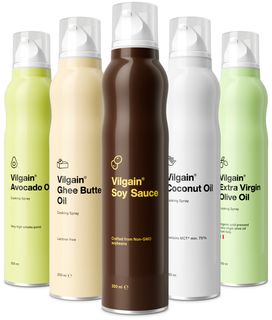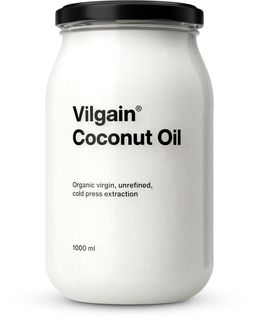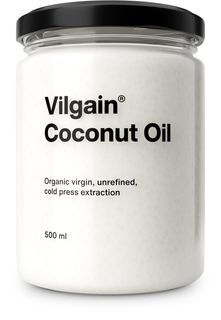
Coconut pulp oil
Coconut oil is produced by mechanically refining the flesh of coconuts. Due to the production process, a distinction is made between refined coconut oil (often abbreviated RBD - refined and bleached odourless oil), which has been stripped of impurities and other substances, and cold‑pressed coconut oil (also known as virgin coconut oil).
Coconut oil is an alternative in the kitchen, but it has also found its place in home cosmetics. The oil has a melting point of around 25 °C and thus turns into a white, solid substance at lower temperatures.
Use of coconut oil in the kitchen
Coconut oil can be used for frying, baking, cooking, but also for cold cooking. For easier and more precise dosing, coconut oil spray can be used. When using coconut oil in the kitchen, it is important to remember:
- refined coconut oil is suitable for baking and frying due to its previous heat treatment, its smoke point is around 230 °C;
- virgin coconut oil is more suitable for cold cooking, or can be used in slow roasting, with a smoke point of around 170‑200 °C.
Cold‑pressed coconut oil is characterised by its delicate coconut aroma and flavour; refined oil, on the other hand, has its flavour and aroma removed during production.
Coconut oil in home cosmetics
Coconut oil has also found its place in cosmetics, where it can help with body care (use unheated virgin oil for this purpose). It can be used:
- on the skin - it can help with hydration and restoring the skin barrier;
- for hair - can increase elasticity and reduce brittleness (similarly, it can strengthen eyelashes or eyebrows);
- for teeth - can reduce the number of harmful bacteria in the mouth.
There is controversy about the effect of coconut oil on scars and stretch marks. Despite several studies, these effects have not been confirmed. The use of coconut oil for sunbathing is not recommended as it does not provide sufficient UV protection.



